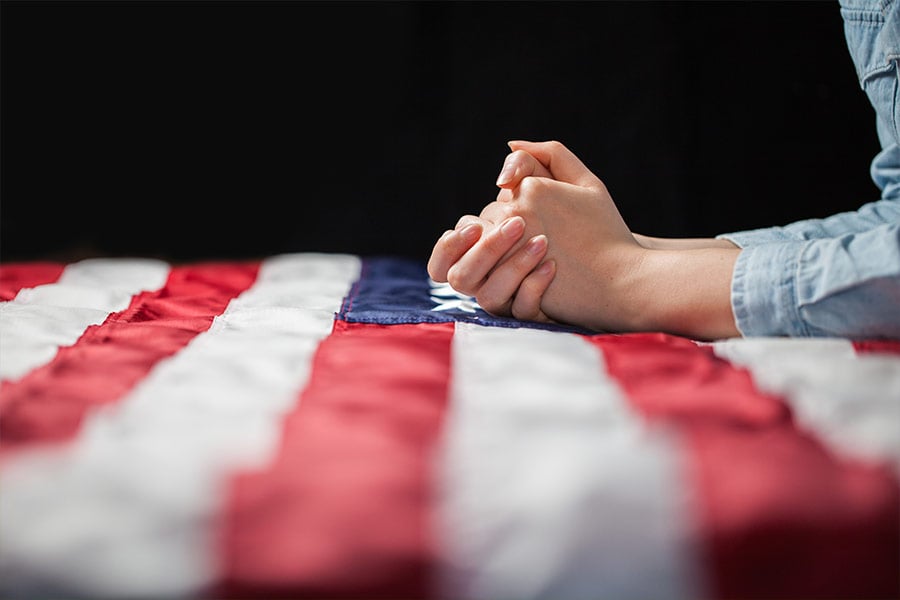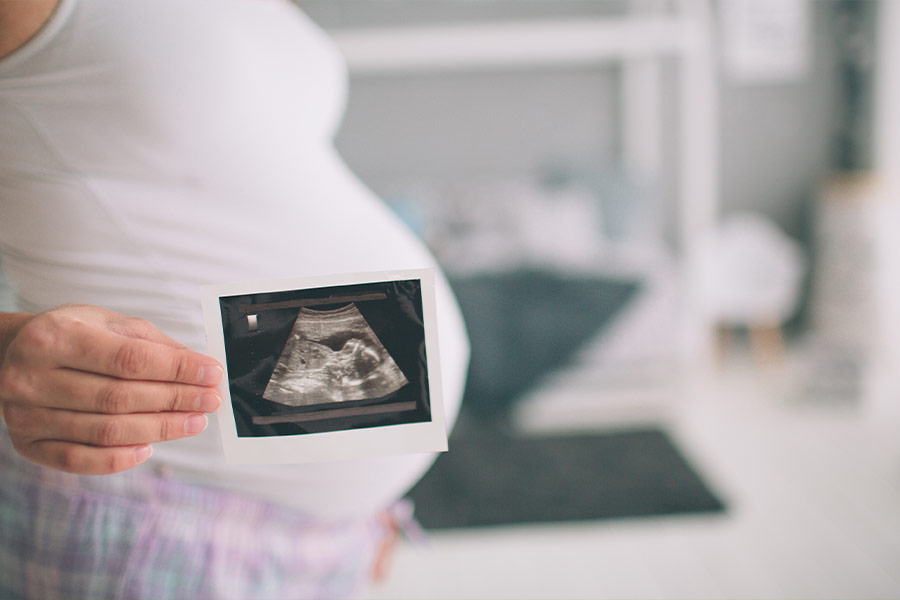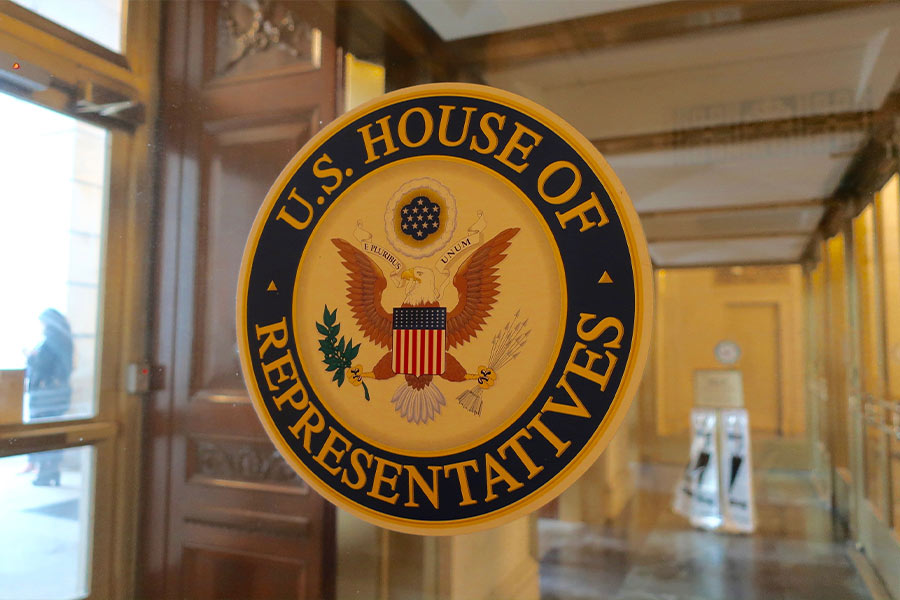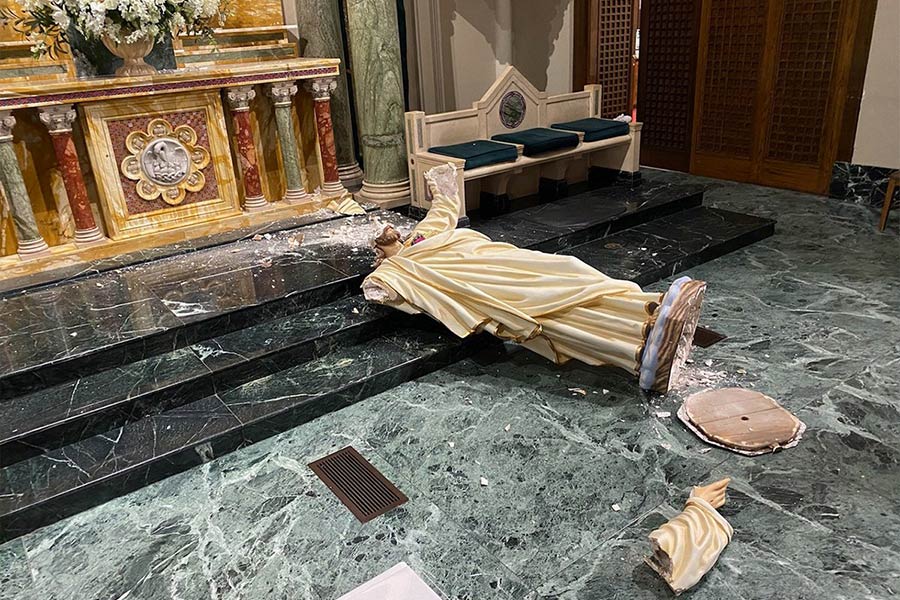The First Freedom: God-given rights to religious liberty face serious new threats

Join the U.S. Catholic Bishops' observance of Religious Freedom Week, June 22-29.
The world is very different now. For man holds in his mortal hands the power to abolish all forms of human poverty and all forms of human life. And yet the same revolutionary beliefs for which our forebears fought are still at issue around the globe – the belief that the rights of man come not from the generosity of the state but from the hand of God.
— President John F. Kennedy, Inaugural Address, Jan. 20, 1961
In a timeless speech that now belongs to the ages, President John F. Kennedy reminded the world of the fundamental American principle that life, liberty, and the pursuit of happiness — as outlined by our founders in the Declaration of Independence — are bestowed upon human beings by God Himself.
The president made several other references to God in his address, ending his speech, “… let us go forth to lead the land we love, asking His blessing and His help, but knowing that here on earth God’s work must truly be our own.”
Times have changed. Countless religious freedoms and God-given rights have been under attack. Two notables include Supreme Court of the United States (SCOTUS) landmark decisions in 1962 and 1973. In the 1962 case, Engel v. Vitale, SCOTUS ruled that school-sponsored prayer, even if non-denominational, was unconstitutional. In 1973, SCOTUS made abortion a constitutional “right” with its Roe v. Wade decision.
Other Supreme Court decisions have buoyed religious freedom, including the June 17 unanimous decision against the City of Philadelphia, which violated First Amendment rights by refusing to contract with Catholic Social Services once it learned the nonprofit would not place children for adoption with same-sex or unmarried couples.
One of the biggest threats to religious liberty today is the proposed “Equality Act,” which could have a catastrophic effect on churches, religious schools, adoption centers, hospitals, charities, families, and even freedom of speech for individuals voicing Biblical teachings.
According to Catholic News Service, Dan Balserak, religious liberty director and assistant general counsel for the United States Conference of Catholic Bishops (USCCB), described the Equality Act as a historic faceoff between LGBTQ rights and religious freedom and the protection of unborn life.
Inequalities of so-called “Equality Act”
The USCCB emphasizes that every human is made in the likeness of God and should be treated accordingly. On the subject of people with same-sex attractions, the USCCB said the Church teaches that they be “accepted with respect, compassion and sensitivity,” and that society must avoid “unjust discrimination in their regard.”
In the same way, the Church cannot disregard the moral teachings of Jesus or condone any restrictions that limit those beliefs.

The Equality Act jeopardizes existing prohibitions on using taxpayer funds for abortion.
The misleadingly named “Equality Act” would add “sexual orientation” and “gender identity” to a wide range of nondiscrimination laws. The act has already passed the U.S. House of Representatives. If approved by the U.S. Senate and signed into law by the president, the measure would likely require taxpayers to fund elective abortions because of its definition of sex discrimination, according to the USCCB.
Furthermore, according to the U.S. bishops, the Equality Act could force doctors and hospitals to perform abortions, even if it violates their beliefs. It could also require businesses and organizations with more than 14 employees, including religious groups, to cover abortions in their health insurance plans.
The list goes on: The Equality Act could mandate that doctors perform life-altering “gender transitions.” It could force girls and women to share locker rooms, gym showers, restrooms, and dorms with males who self-identify as females, and even compete in school sports against them.
Catholic Charities and other charitable groups who abide by their religious doctrines would also be harmed. If signed into law, legal experts say the act would be devastating to these groups, including Catholic foster care and adoption services that place children in a home with a married mother and father. Similarly, such groups maintaining emergency shelters for abused and traumatized women would be forced to house them with biological men or face shutdown.
Furthermore, the Equality Act could force church-owned halls and properties to host same-sex ceremonies and other events, and it could strip churches, parochial schools, hospitals, and charities of federal tax exemptions for their teachings and sincerely held beliefs on marriage, sex, and gender. The act could also prohibit freedom of speech, requiring all people to use preferred pronouns.
Time for Catholics to act
Balserak, at the USCCB, encouraged all North Texas Catholics to “walk the walk” right now in living out their faith.
“Here in the United States, we often call religious liberty the ‘first freedom,’” Balserak told the NTC. “It is the first to be named in the First Amendment. It preceded the creation of the state. And it protects our ability to fulfill our highest obligation — our duty to God.
“If we cannot freely seek divine truth, all other freedoms are meaningless,” he explained. “So, Catholics should take special care to value religious freedom in their public life.”
Balserak urged Catholics to make their voices heard to their elected representatives and to be resolute in the fight to preserve religious liberties.
“The best thing you can do for religious liberty is to do what you’re already supposed to be doing — live a boldly and authentically Catholic life,” Balserak continued. “Yes, of course, stay informed and let your legislators know you value religious liberty; vote for candidates who do, too. But the case for religious liberty will ultimately not be won or lost in the courts, but in the hearts and minds of our neighbors. So, get out there and show everyone what our faith is good for.”

Copyright (c) 2019 DCStockPhotography/Shutterstock.
David Upham, Ph.D, J.D., and Professor of Politics at the University of Dallas expressed similar sentiments.
Those who believe in Judeo-Christian principles in the United States have become a “shrinking minority,” he said. “But we’re large enough to do something about it and not just sit here. It is important for us, even if we are a minority, to urge our political representative to protect our rights for equal citizenship in our own country.
“It is our right, and in fact our duty, to provide things like adoption services and all other types of corporal works of mercy that the Church has always done, without at the same time, by word and by deed, renouncing what our Lord teaches and what the Church has always taught about matrimony.”
The professor urged anyone interested in preserving their religious freedoms to contact their U.S. Senators and tell them to not only oppose the act, but to ensure that it does not reach the Senate floor for a vote. Even in states such as Texas, where both U.S. Senators have gone on record opposing the act, issues about preserving religious freedoms need to be reiterated, he added.
To illustrate his point, Dr. Upham quoted the late Everett McKinley Dirksen, a Republican congressman and senator from Illinois who helped write and pass the landmark Civil Rights Acts in the 1960s. The politician once said, “When I feel the heat, I see the light.”
“They always need to be reminded,” the professor said.
The assault to religious freedom brought on by the Equality Act “is not accidental. It is intentional,” Dr. Upham continued.
The professor explained that the proposed legislation, which exempts itself from the Religious Freedom Restoration Act, was written “for the purpose of getting at the people that the authors of the act want to get at: the shrinking minority of Americans who still believe, ‘Male and female, He created them’ (Genesis 1:27).
“And it would represent the first act in American history where any major civil rights legislation would be repealed,” the political science professor said.
Richard Thompson, president and chief legal counsel for the Thomas More Law Center, based in Michigan, is also alarmed that the Equality Act exempts itself from the Religious Freedom Restoration Act. Thompson heads up a team of lawyers and 780 allied attorneys across the nation offering pro bono help on legal cases involving religious freedom.
The Religious Freedom Restoration Act of 1993 was intended to safeguard free exercise of religion, Thompson explained.
“So, not only are they attacking Christians, but they are trying to remove the legal defense that Christians have,” Thompson said.
“Christians who believe in Biblical principles, who believe in the Bible, and who want to practice their faith will be under constant threat of discrimination lawsuits if the Equality Act passes,” Thompson predicted.
While many people oppose the Equality Act and other legislation or judicial decisions that erode their religious liberties, they are reluctant to speak up because they fear being labeled as intolerant or bigoted, Thompson said.
“It’s going to take a lot of courageous Christians to stand up and fight for what their faith tells them is the truth,” he continued.
“If we sit back and do nothing, we are merely encouraging more attacks on the Christian faith and on Christians individually. Power is still in the hands of the people if they choose to get involved and use that power,” Thompson said.
Thompson encouraged people to get involved at the local level, especially with public school boards of education “where they are determining the curriculum that your children are going to have. The classroom is where the struggle is occurring, where they are fighting for the hearts and minds of young people.”
A believer in the benefits of Catholic schools, Thompson said such institutions and other private schools are wise options for parents concerned about what their children are being taught.
Bishop Michael Olson, certainly a strong proponent of Catholic education, takes the issue back a step further.
“Mothers and fathers are the primary educators and formators of their sons and daughters. That is prior to the responsibilities of schools, whether they be public or private or religious. Mothers and fathers need to be involved in the education of their children, including in this very delicate issue of sexuality and gender identity.”
The Equality Act, if passed, would take that responsibility away from parents who hold religiously formed values, and put it directly in the hands of the state, the bishop said.
Bishop Olson said that if passed into law, the act could also result in Christians being charged with hate speech for defending what the Bible tells them about issues of morality.
“This false charge of hate speech makes it ever more urgent that we courageously speak the truth of Christ in love and never out of fear, anger, resentment, arrogance, or contempt for other people. Yet, speak the truth at all costs.”
The bishop continued, “The Church will always speak the truth … but it could cost us a great deal of suffering to maintain the truth that we believe, that we know, that we can grasp through faith and right reason.”

An almost 90-year-old statue of the Sacred Heart of Jesus destroyed on Sept. 15, 2020, is seen at St. Patrick Cathedral in El Paso, TX. Authorities have apprehended a suspect in the vandalism. (CNS photo/Fernie Ceniceros)
If the Equality Act is passed and enforced, Bishop Olson said, it could inflict great harm on Catholic schools, which will not deviate from teaching strongly held Christian beliefs. “We cannot operate our schools under those mandates,” the bishop said. “In other words, we are not going to teach that. And the enemies of the Church will attempt to shut us down.”
Bishop Olson encouraged Catholics to “know their faith, to know what the Church truly teaches” and to accept the fullness of the Gospel that is revealed to them in Christ.
It is important for Catholics to share that faith with others. Only then, the bishop said, can Catholics effectively stand firm for what they believe.
Church attacks growing around the world
In addition to facing religious freedom threats in political arenas, the Church is also literally under physical attack from vandals.
Since May 2020, at least 75 incidents of vandalism have occurred at Catholic Churches and cemeteries in 25 states. This has included arson, desecration of statues, defaced gravestones, vile graffiti, burning of American flags, and general destruction.
One of the incidents, which occurred July 11, 2020, at Queen of Peace Catholic Church in Ocala, Fla., could have proven deadly. According to news reports based on statements from the Marion County Sheriff’s Office, a man crashed his minivan into the front door of the church, poured gasoline in the foyer and ignited it — setting the Catholic church on fire with parishioners still inside.
In Nicaragua, Catholic clergy have been harassed, arrested, and assaulted during the current political unrest there, according to the USCCB. In addition, churches have been desecrated and the faithful fear attending Mass due to threats and violence.
In Iraq, the Christian population that was once estimated at 1.4 million faithful has dwindled to less than 300,000. The decrease is a result of brutal attacks, harassment, intimidation, and extortion of Christians.
Nigeria recently made the World Watch List Top 10 list of countries for the persecution of Christians. The murders and kidnappings of priests and Christians, by terrorist group Boko Haram and others, led the U.S. State Department to identify the African nation as a “country of particular concern” for religious freedom.
The issues outlined by Bishop Olson, Professor Upham, religious freedom attorneys Richard Thompson and Dan Balserak, and the USCCB are just some of the many in the United States and around the world involving the persecution of Christians and the trampling of their religious liberties.
Bishop Olson emphasized that Christians should never despair in defending their faith, especially considering the support they have behind them.
“We have the guarantee of Christ,” the bishop said, “that He will always be with us until the end of the world.”
Check out resources to learn more about religious freedom at the Diocese of Fort Worth website.
